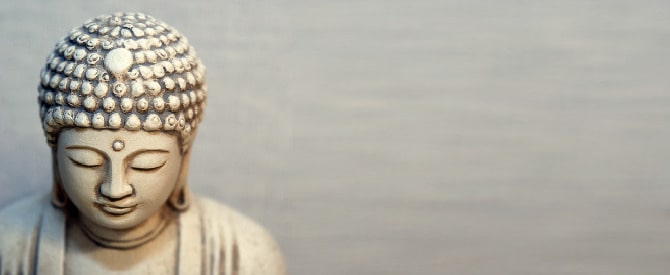Humility is a strange thing. The minute you think you have got it, you have lost it. —Swami Chinmayananda
Isn’t it strange that someone can be proud of being humble? True humility is a subtle inner quality that is expressed sincerely and spontaneously with total self-effacement. When you feel you are being humble, you’re far from it.
Humility denotes a total absence of pride or ego. With humility comes a willingness to learn, adapt and grow.
I remember attending a professional foot reflexology training many years ago. Since the instructor knew that we had already been proficiently practicing our skills a certain way and her method was quite different, she started with a demonstration.
She put 2 glasses of water on a table. One was half-full and the other was totally full. Then she held in her hand a third glass of rose-coloured water. She asked the audience in which glass she could pour the coloured water into—the glass that was half-full or totally full. Obviously, the audience responded that she could add the water to the glass that was half-full.
She then asked what needed to be done if she wanted to add the water to the glass that was already full. The audience answered that she needed to remove some of the water. So she poured away some of the water from the full glass and added the coloured water to it. Now, the previously full glass could hold the rose-coloured water.
She then turned to the audience and said, “Similarly, to be open to taking in new knowledge, you have to be willing to remove old notions that prevent you from learning. I hope that like that full glass, you too will be able to put aside any preconceived ideas you may have about the best way to give effective foot reflexology treatments. The techniques that I will share with you will challenge you to do that.”
If taking in new knowledge in a worldly field requires a certain level of humility and receptivity, having these qualities on the spiritual path is so much more important.
What are the various facets of humility? Humility cannot be fully explained or appreciated without understanding the ego, its opposite quality.
An egotistical person is arrogant, harsh and often hypocritical. He neither likes change nor feels any need for self-improvement. If there’s anyone who needs changing it’s someone else.
The ego sees differences and is always comparing itself with others. It gains its sense of security and self-esteem by out-performing others or putting them down. When someone points out its faults, it rejects them totally.
With humility, there is a willingness to admit and own any mistakes and do what it takes to make amends. Humility accepts that since you yourself are not perfect, you accept others as they are without needing to correct them or change them to a particular way of thinking.
Humility allows you to forgive yourself and forgive others. The ego is unable to forgive and let go of the past. It lives on fault-finding and blaming.
A humble person is respectful, understanding and kind. There is no sense of self-importance or hypocrisy. There is a freshness and openness that connects you with people’s hearts.
To progress spiritually, cultivate humility
If you would like to progress on the path of spirituality, you cannot do it without cultivating humility. There are several reasons.
Humility enables you to surrender your will, your life and effort to God or the divine higher power.
Even if the ego admits to the presence of a higher power, it has a hard time surrendering control over it. There’s always a feeling that it must do something and can find solutions to its own problems.
But not all problems in life have worldly solutions. For example, permanent solutions to clearing self-limiting beliefs, healing difficult relationships, and ending struggles to find answers to lingering questions about life come from gaining spiritual knowledge and spiritual solutions.
A humble person has a desire to cultivate faith in God and finds it easier to do so when compared to a proud person who pooh-poohs the whole idea of a divine higher power.
An egotistical person takes things for granted. But gratitude flows effortlessly from a humble heart fully aware of the innumerable blessings it enjoys.
 With gratitude comes the desire to give back to the divine by being of service to others.
With gratitude comes the desire to give back to the divine by being of service to others.
Wholehearted, humble service without ego and selfish desires purifies the heart and one becomes ready for higher spiritual studies, contemplation and meditation. These higher practices greatly enhance a seeker’s inner growth and happiness.
As you can see, humility is a beautiful starting place that gives rise to many other noble qualities like some of the ones mentioned here—forgiveness, accepting and being respectful of others, kindness, surrender, faith, gratitude, and service.
In some of the traditional Hindu teachings, it is said that humility is the thread that keeps the other noble virtues together. Pride on the other hand, prevents them from growing.
As long as the ego continues to assert its strong sense of individuality and rejects inner change, it will not allow us to progress spiritually. This is because the ego’s need for always being right, competition and one-upmanship is based on ignorance of the truth of our essential oneness.
We are essentially ONE. The quality of humility helps us to be open to surrender worn-out notions, to learn and to come to realise this vibrant fundamental truth of life. There is no movement toward this goal without cultivating humility, an essential quality for your spiritual path.
Like this post? Sign up for the free fortnightly Spiritual Solutions Newsletter and receive the latest articles, news and updates in your email inbox!













